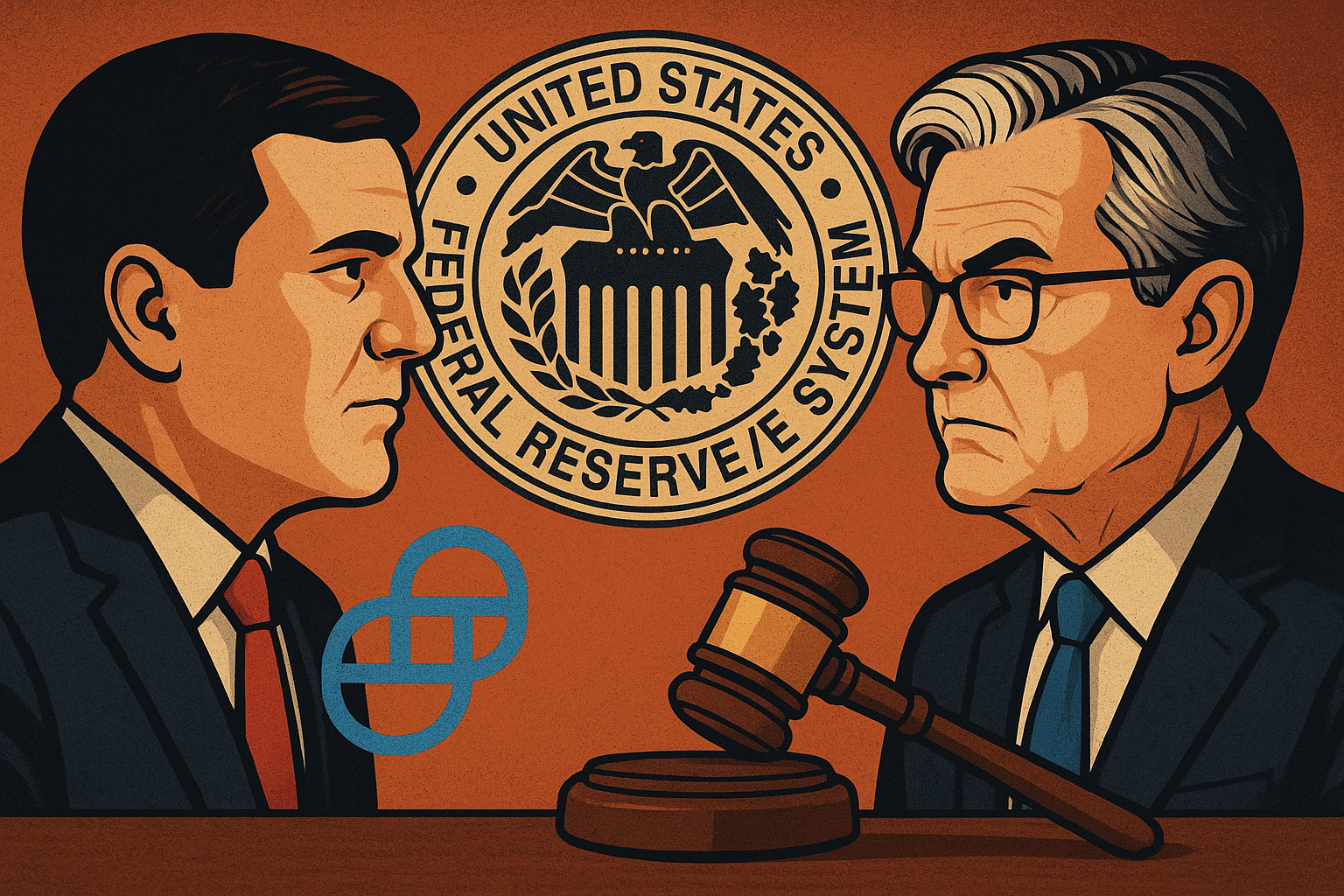The Federal Reserve is already in the spotlight as investors brace for what could be the most consequential rate decision of the year. Now, political dynamics in Washington have added a new layer of uncertainty. On Monday, the U.S. Senate narrowly confirmed Stephen Miran—President Trump’s top economic adviser—to the Federal Reserve Board in a 48-47 vote, a move that further politicizes the Fed at a critical juncture for markets.
With rate cuts widely anticipated at the upcoming meeting, the confirmation of a Trump ally shifts perceptions about the Fed’s independence and raises questions about whether politics could shape monetary policy more directly than in recent decades.
Why This Matters for Investors
Markets thrive on predictability, and the Fed has long been seen as a bastion of policy independence. That image is now under scrutiny. Miran’s appointment—pushed through by a razor-thin margin—signals that the White House is exerting greater influence over central bank decision-making.
For bond and equity investors, this development introduces a new risk factor: policy volatility. The mere perception that Fed decisions could be politically motivated rather than purely data-driven can rattle markets, especially at a time when inflation remains above the Fed’s 2% target and growth is slowing.
The U.S. 10-year Treasury yield, which has already swung more than 20 basis points in the past week on speculation about the Fed’s stance, may face sharper moves if markets doubt the central bank’s credibility. Equity markets, particularly financials and rate-sensitive sectors like real estate, could also see heightened volatility in the days ahead.
Fed Independence Under Pressure
Miran’s confirmation follows weeks of public tension between Trump and Fed Chair Jerome Powell. Trump has repeatedly criticized the Fed for being “too slow” to ease policy, urging aggressive cuts to support growth ahead of the 2026 election cycle. While Powell has sought to reinforce the Fed’s independence, this appointment puts Trump’s influence directly inside the policymaking room.
According to Reuters, the Senate’s narrow vote underscores how contentious the move was, with Democrats warning that political pressure could compromise the Fed’s role as a nonpartisan guardian of monetary stability. Analysts at Goldman Sachs noted in a client briefing that “any perception of diminished independence could widen risk premiums across fixed income markets.”
Future Trends to Watch
- Fed Meeting This Week: Investors should closely monitor changes in the Fed’s language on inflation and growth. Even subtle shifts could signal whether political pressure is shaping the discussion.
- Bond Market Reactions: If markets sense credibility erosion, expect greater demand for inflation-protected securities (TIPS) and more volatility in Treasury auctions.
- Global Confidence in the Dollar: Foreign investors, who hold nearly $8 trillion in U.S. debt, may demand higher yields if they perceive politics are undermining monetary policy discipline.
- Equity Market Sentiment: Growth sectors, particularly tech, could rally if easier policy emerges. But financials may face margin pressure, and small-cap stocks sensitive to rate changes could see exaggerated swings.
Key Investment Insight
The Fed’s credibility is now as much of a market driver as inflation or unemployment data. Investors should prepare for heightened policy volatility in the near term, with bond yields and rate-sensitive sectors bearing the brunt of the uncertainty. Hedging exposure to Treasuries, diversifying across non-U.S. assets, and keeping cash allocations flexible may prove prudent strategies.
As the Fed prepares to announce its decision this week, all eyes will be on how this new political dynamic plays out in real time. Whether Miran’s presence on the board tilts policy toward Trump’s growth-first agenda—or whether Powell can hold the line on independence—could set the tone for markets into 2026.
For investors, the message is clear: stay alert, stay hedged, and don’t underestimate the impact of politics on monetary policy.
Stay with MoneyNews.Today for daily insights into the stories shaping your portfolio.





